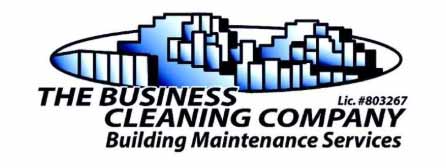Select a service that specializes in the hospital cleaning to halt the spreading of infectious diseases, comply with all the necessary guidelines, and ensure your hospital looks its best. When selecting a hospital cleaning service it is best to hire a company that specializes in hospital housekeeping. Hospitals are not your ordinary office buildings; they are institutions that require intensely spotless conditions to protect their patients from the spreading of bacteria and viruses.
The intent of hospitalization is to heal a patient rather than introduce them to new and dangerous diseases. That is why it so critical to hire a cleaning service that is highly rated and experienced in hospital cleaning. Your housekeeping selection will make all the difference when it comes to the success of your institution.
A cleaning service specializing in hospitals and health management institutions should be trained to properly cleansed and straighten up patient recovery rooms, exam rooms, operating rooms, X-ray rooms, emergency rooms, and MRI rooms taking special care to not tamper with expensive medical machinery and materials.
Hospital Cleaning Facts: Ensuring Hygiene and Safety Standards
Introduction: Importance of Hospital Cleaning
Hospitals are crucial institutions dedicated to providing medical care and promoting health. In such environments, cleanliness and hygiene play a paramount role in safeguarding patients, staff, and visitors from potential infections and maintaining a safe healthcare setting. Hospital cleaning is a vital aspect of daily operations, ensuring a sanitized and healthy environment conducive to healing. Let’s explore some essential facts about hospital cleaning and the significance it holds in the healthcare industry.
The Role of Professional Cleaners
Ensuring a Sterile Environment
Hospital cleaning goes beyond the routine tidying and focuses on maintaining a sterile environment. Professional cleaners are equipped with the knowledge, skills, and specialized tools necessary to effectively eliminate harmful pathogens and bacteria that could pose risks to patients’ well-being. They follow stringent protocols and utilize hospital-grade disinfectants to target high-touch surfaces, patient rooms, operating theaters, and other critical areas.
Compliance with Regulatory Standards
Hospital cleaning professionals adhere to strict guidelines and regulations set forth by health organizations and regulatory bodies. These standards ensure that hospitals meet specific cleanliness benchmarks, preventing the spread of infections and enhancing patient safety. Regular inspections and audits verify compliance, reinforcing the commitment to maintaining high hygiene standards.
Advanced Cleaning Techniques
Innovative Technologies for Enhanced Cleanliness
To combat the ever-evolving landscape of infectious diseases, hospitals continually explore advanced cleaning techniques. Some cutting-edge technologies employed in hospital cleaning include:
- UV Disinfection: Ultraviolet (UV) light is utilized to destroy microorganisms on surfaces, making it an effective tool in reducing the risk of infections.
- Electrostatic Sprayers: These devices apply an electric charge to disinfectant particles, ensuring comprehensive coverage on surfaces and minimizing the chance of cross-contamination.
- Steam Cleaning: High-temperature steam effectively eliminates bacteria, viruses, and fungi, providing a chemical-free and environmentally friendly approach to cleaning.
The Impact of Hospital-Acquired Infections
Preventing Healthcare-Associated Infections (HAIs)
Hospital-acquired infections are a significant concern in healthcare facilities worldwide. These infections can prolong hospital stays, escalate treatment costs, and, in severe cases, lead to fatalities. Effective hospital cleaning practices are instrumental in minimizing the risk of HAIs by eliminating pathogens from surfaces and preventing their transmission.
Improved Patient Outcomes
Maintaining a clean and sterile environment positively impacts patient outcomes. Patients recovering from surgeries or those with compromised immune systems are particularly vulnerable to infections. By implementing rigorous cleaning protocols, hospitals create a safer environment that promotes healing and reduces the likelihood of complications.
The Future of Hospital Cleaning
Continuous Innovation and Adaptation
As the healthcare industry evolves, hospital cleaning practices must also adapt to emerging challenges. With the ongoing COVID-19 pandemic, the importance of maintaining strict hygiene protocols has become even more evident. Hospital cleaning professionals continue to explore innovative solutions, harnessing technology and research to develop new methods that ensure the highest level of cleanliness and safety.
Conclusion
Hospital cleaning plays an indispensable role in preserving hygiene and preventing infections within healthcare facilities. The dedication of professional cleaners, adherence to regulatory standards, and utilization of advanced techniques contribute to the overall well-being of patients and staff. By recognizing the critical nature of hospital cleaning, we prioritize the health and safety of everyone who walks through the hospital doors.
Remember, a clean hospital is a healthier hospital.
Disclaimer: The information provided in this article is for educational purposes only and does not constitute medical advice. Always consult with healthcare professionals for specific guidance regarding cleanliness and infection prevention in hospitals.





